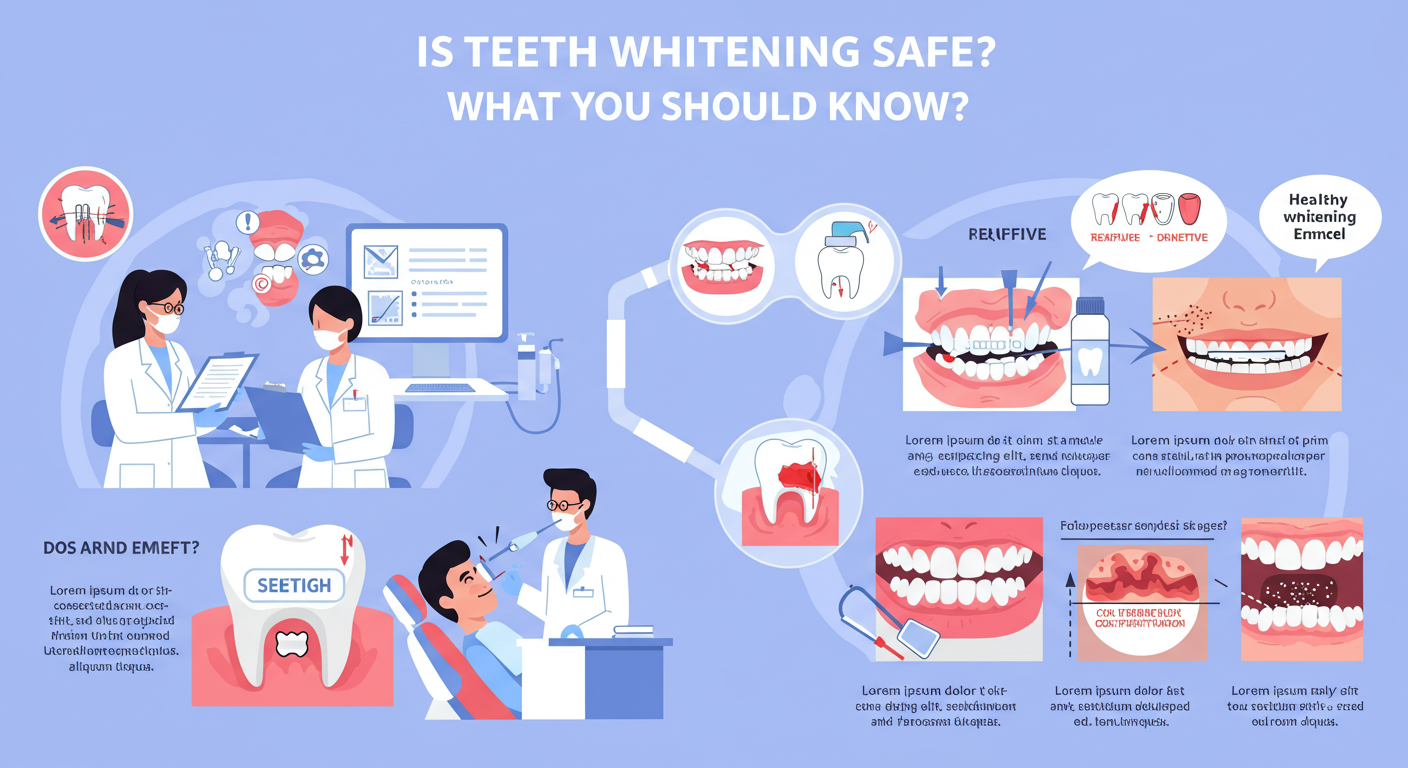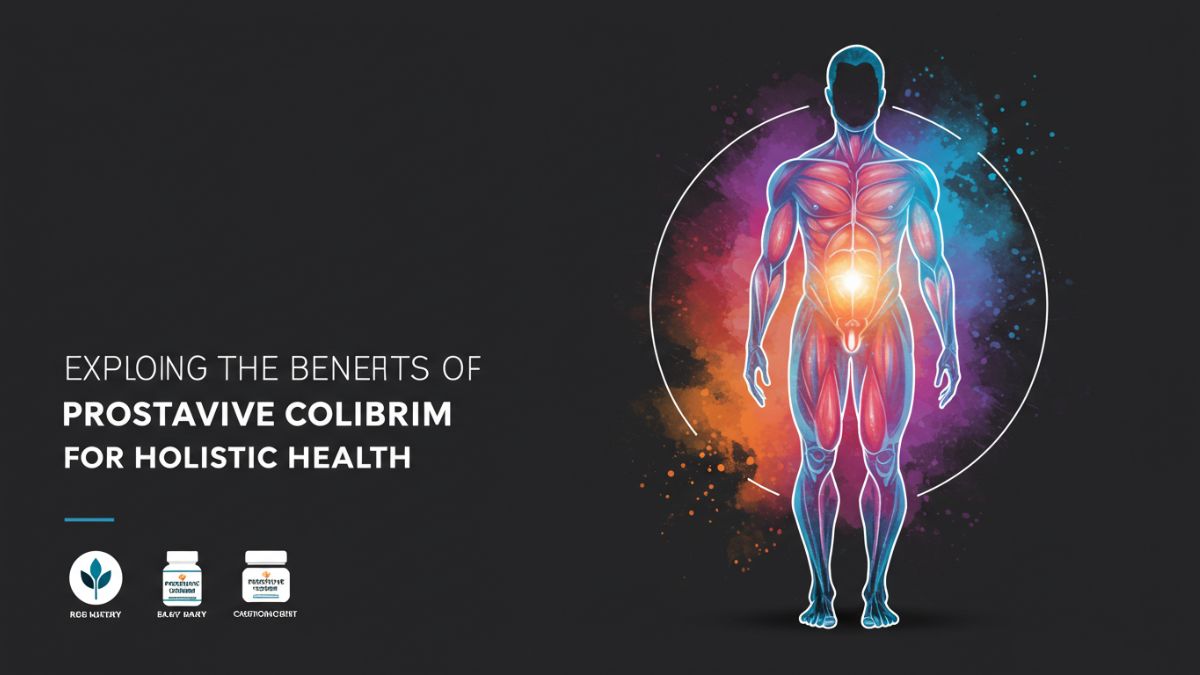HEALTH
Can Pregnancy Cause Tooth Loss?

Pregnancy involves a journey that affects many physical aspects of a woman’s body, including dental health. Are you experiencing dental issues more frequently now, during your pregnancy time, than ever before?
In this post, family dentistry in Harrisburg, NC, will help us explore the topic of oral health during pregnancy. We’ll answer all the important questions regarding this topic, including: Can pregnancy hormones cause tooth loss? We’ll also provide you with valuable information on how pregnancy can impact your dental health and how you can manage this issue.
The Link Between Pregnancy Hormones and Dental Health
During pregnancy, a woman’s body experiences a sudden hormone increase, notably estrogen and progesterone. These two hormones have a pivotal role in supporting a healthy and balanced pregnancy, but they can also have various side effects on your overall health, including oral health.
Gum Disease
One of pregnancy’s most common effects on oral health is an increased risk of gum diseases. Hormonal changes tend to cause increased gum sensitivity and plaque, leading to a possible condition called pregnancy gingivitis. Symptoms of this condition can vary, but they typically include swelling, tenderness, itching, and bleeding of the gums. It’s crucial to be cautious about this condition; if left untreated, it can become a much more severe gum disease, like periodontitis.
Dental Erosion
Another unpleasant adverse effect of pregnancy is morning sickness, which can lead to dental erosion. Morning sickness also occurs due to hormonal disbalance, which involves recurrent nausea and vomiting. Excessive vomiting may lead to exposure of teeth and gums to stomach acid, which translates to several oral problems. The biggest one is the risk of stomach acid rotting the outer layer of teeth, causing increased teeth sensitivity and a more considerable risk of cavities.
Lack of Essential Nutrients
Correct nutrition is vital for the baby’s proper bone development and the mother’s well-being.
As nutrients are distributed between the baby and the pregnant woman, your body consumes them at a much faster pace. Mothers need to consume at least twice as much nutrients to stay healthy. Inadequate intake of essential nutrients such as calcium, iron, or
vitamin D can negatively affect a mother’s strength and oral health, especially teeth enamel.
Can I Lose My Teeth During Pregnancy?
The short answer is no – pregnancy doesn’t cause tooth loss. However, pregnancy can actually influence some not-so-pleasant changes to your oral health. Hormonal disbalance and other factors like increased blood flow can expose you to dental problems that can cause teeth loss if not treated.
Pregnancy alone probably won’t cause tooth loss; you don’t have to worry about that. However, dental risks that come with pregnancy can eventually lead to teeth loss. Because of that, try to take your oral hygiene as seriously as possible, especially during this period of your life. Proper dental hygiene and periodic visits to your dentist for checkups will vastly reduce the chances of having dental issues, such as teeth loss.
Tooth Loss During Pregnancy – How to Prevent It From Happening
The potential risks of dental hygiene during pregnancy are serious, but you can prevent them by following these tips:
Maintain Good Oral Hygiene
As for every tip regarding oral health, maintaining good dental hygiene is crucial! Try brushing your teeth at least twice daily for about two minutes with a fluoride paste. Don’t forget to floss thoroughly to remove any remaining food particles and plaque stuck between your teeth. Also, if you use mouthwash, look for the ones without alcohol since it can dehydrate your mouth and cause dental issues.
Follow a Rich Diet
Besides maintaining good dental hygiene, don’t forget to balance your diet correctly! Increase your weekly intake of essential nutrients such as vitamin D, calcium, and iron. Start taking prenatal vitamins if necessary, but always consult your doctor first.
Another piece of advice that goes in hand with a balanced diet is staying hydrated. Drink enough water during the day to maintain good saliva levels. Saliva protects your teeth from cavities and other common gum diseases.
Maintain Regular Dentist Visits
We understand that pregnancy is a busy time; you probably have to do millions of things before the baby arrives. Still, try to leave time for regular dentist checkups. Before or very early in pregnancy, schedule a dentist appointment to see if you have any existing dental problems and solve them on time. Pregnancy can lead to extreme progression of existing dental problems, so addressing them beforehand is vital. Ensure to inform your dentist about your pregnancy since some procedures are too risky and incompatible with pregnancy.
Oral Hygiene and Morning Sickness
And last but not least, it’s crucial that you manage your morning sicknesses. Thoroughly rinse your mouth with non-alcoholic mouthwash or water to neutralize stomach acid as much as possible. Just don’t brush your teeth immediately after vomiting, as the brush can damage enamel softened by stomach acid.
Final Thoughts
As we’ve learned, pregnancy does not directly cause teeth loss. However, the hormone disbalance and other factors caused by pregnancy can trigger various dental problems that may lead to teeth loss. Maintaining good oral health during pregnancy is crucial; practice dental hygiene, attend regular dental checkups, and have a balanced, nutritional diet. That way, you will keep your dental health intact and carry on with pregnancy without worrying about compromising your smile!
HEALTH
Blackboard uti: How Digital Learning Habits Can Affect Your Urinary Health

In today’s world, digital platforms like Blackboard have revolutionized education. While they offer unmatched convenience and access to learning, they also come with some unexpected health consequences. One such emerging concern is what’s being referred to as blackboard UTI. Though not a formal medical diagnosis, blackboard UTI is used to describe the rise in urinary tract infections (UTIs) connected to extended use of online educational tools and a sedentary digital lifestyle.
Spending hours on digital learning platforms like Blackboard can lead to behaviors that increase the risk of urinary tract infections — such as sitting for long periods, ignoring the need to use the restroom, and not drinking enough water.
Understanding Blackboard UTI and Its Impact
What is a Blackboard UTI?
The term “blackboard UTI” is a modern expression describing UTIs caused or aggravated by lifestyle habits common among students and professionals who spend excessive time on Blackboard or similar learning systems. The term sheds light on how technology-induced routines can quietly affect physical health, especially the urinary system.
Key Contributors to Blackboard UTI
1. Prolonged Screen Time Without Movement
Staying seated for hours on end while attending virtual classes or completing assignments reduces circulation and puts continuous pressure on the lower abdomen. This stagnant position can impact bladder function and increase the chance of bacterial growth.
2. Ignoring Bathroom Urges
Many online learners get so engrossed in coursework that they postpone trips to the restroom. Holding in urine for long periods allows bacteria to multiply in the bladder, often resulting in an infection.
3. Insufficient Water Intake
When involved in online sessions or late-night study marathons, people often forget to drink water. This leads to concentrated urine, which can irritate the urinary tract and promote infection.
Symptoms to Watch Out For
If you’re a frequent user of Blackboard or similar platforms, it’s important to recognize the early signs of a blackboard UTI. Catching symptoms early can help prevent more serious issues.
-
A burning feeling when urinating
-
Needing to urinate frequently, even if little comes out
-
Cloudy or foul-smelling urine
-
Pelvic discomfort or pressure
-
Mild fever or fatigue in some cases
These signs should not be ignored, especially if you spend several hours each day working or studying online.
Lifestyle Habits That Increase Risk
Skipping Breaks During Study Sessions
Going from one online class to another without breaks can lead to stress and neglect of basic bodily needs like hydration and restroom use.
Poor Posture and Sitting Positions
Bad posture while seated can indirectly affect bladder function. Slouching or leaning forward for long periods may lead to lower abdominal pressure, which can trigger discomfort or increase infection risk.
Caffeine and Sugary Drinks
Many online learners rely heavily on caffeinated beverages or energy drinks to stay focused. Unfortunately, caffeine acts as a bladder irritant, which can aggravate or contribute to UTIs.
Preventing Blackboard UTI: Practical Tips
Preventing a blackboard UTI involves simple yet consistent habits that support urinary tract health even during demanding study schedules.
1. Stay Properly Hydrated
Drinking enough water throughout the day helps flush bacteria out of the urinary tract. Use a water tracker or schedule hydration reminders during online classes.
2. Take Breaks to Move and Stretch
Get up every 45 to 60 minutes, walk around, and stretch. Movement improves circulation and reduces strain on your lower body, which supports bladder health.
3. Don’t Delay Bathroom Breaks
If you feel the urge to urinate, pause your session and go. Holding it in not only causes discomfort but also increases your risk of infection.
4. Maintain Hygiene Standards
Wash your hands regularly, especially before and after using the restroom. Also, keep your workspace clean to avoid indirect exposure to germs.
5. Limit Caffeine and Soda Intake
Opt for water, herbal teas, or diluted fruit juices instead of coffee or soda. These alternatives are gentler on your bladder and promote hydration.
Managing Blackboard UTI if It Occurs
If you suspect a blackboard UTI, take steps to manage it before it worsens. Mild infections may clear up with proper care, but persistent symptoms require medical attention.
Home Remedies and Self-Care
-
Increase your water intake immediately
-
Avoid bladder irritants such as spicy foods and caffeine
-
Use a heating pad on the lower abdomen for relief
-
Take cranberry supplements if recommended
Medical Treatment
If symptoms last more than 48 hours or worsen, consult a healthcare provider. They may prescribe antibiotics or run tests to ensure the infection hasn’t spread to the kidneys.
Long-Term Prevention for Online Learners
Creating sustainable habits is the best way to reduce the risk of blackboard UTI in the long run.
-
Build a daily routine that includes movement, hydration, and rest
-
Use ergonomic furniture to support better posture during long sessions
-
Keep healthy snacks and water at your desk
-
Consider bladder-friendly foods like yogurt, bananas, and leafy greens
By making your health a priority alongside your studies, you can reduce your risk of developing UTIs while still thriving in an online learning environment.
Conclusion:
As online education becomes more common, it’s important to address hidden health risks like blackboard UTI. Simple preventive steps like drinking water, taking breaks, and avoiding harmful habits can go a long way in maintaining your urinary health. Stay mindful of your body even when your mind is focused on learning, and make wellness an essential part of your daily routine.
HEALTH
Is Teeth Whitening Safe? What You Should Know

Teeth whitening is one of the most popular cosmetic dental treatments today. It helps remove stains and discoloration, giving you a brighter, more confident smile. However, many people wonder whether teeth whitening is safe and what potential risks it may involve.
Is Teeth Whitening Safe?
Yes, teeth whitening is generally safe when done correctly and under the supervision of a dental professional. However, certain factors determine the safety and effectiveness of the treatment.
1. Professional vs. Over-the-Counter Whitening
- Professional Whitening: Performed by a dentist, this method ensures the safest and most effective results. It uses high-quality bleaching agents while protecting your gums and enamel.
- Over-the-Counter Products: Whitening strips, toothpaste, and gels can be effective but may lead to sensitivity or uneven results if not used properly.
2. Potential Side Effects
While teeth whitening is safe, some people may experience minor side effects, including:
- Tooth Sensitivity: Whitening agents can temporarily make your teeth more sensitive to hot and cold.
- Gum Irritation: If the bleaching agent comes in contact with the gums, it may cause mild irritation.
- Uneven Whitening: Existing dental work like crowns or fillings will not whiten, leading to color inconsistencies.
How to Whiten Teeth Safely
1. Consult a Dentist First
Before starting any whitening treatment, it’s best to consult a dentist to assess your oral health and recommend the best approach.
2. Use ADA-Approved Products
When using at-home whitening kits, always look for products approved by the American Dental Association (ADA) to ensure safety.
3. Follow Instructions Carefully
Overuse of whitening products can damage enamel and cause long-term sensitivity. Always follow the recommended usage guidelines.
4. Maintain Good Oral Hygiene
To keep your teeth naturally white:
- Brush twice a day with fluoride toothpaste.
- Floss daily to remove plaque buildup.
- Avoid foods and drinks that stain teeth, such as coffee, tea, and red wine.
Teeth Whitening for Younger Patients
Teeth whitening is generally not recommended for children and teenagers, as their enamel is still developing. If you’re considering whitening options for your child, consult a Pediatric Dentist in Fredericksburg, VA to explore safe alternatives.
Conclusion
Teeth whitening is a safe and effective way to enhance your smile when done correctly. Professional treatments offer the best results with minimal risks, while at-home options should be used cautiously. Always consult a dentist before starting any whitening regimen to ensure the safety and health of your teeth.
HEALTH
Exploring the Benefits of Prostavive Colibrim for Holistic Health

Enter prostavive colibrim, a supplement designed to support holistic health by focusing on prostate health through natural and complementary ingredients. But what exactly sets Prostavive Colibrims apart, and why is it rapidly gaining popularity? This post unpacks the key benefits, addresses common questions, and explores how this formula aligns with a holistic approach to health.
If you’re looking to take charge of your wellness in a comprehensive way, read on to discover how Prostavive Colibrims can play a role in your overall health strategy.
Why Prostate Health Should Be a Priority in Holistic Wellness
When we talk about holistic health, we mean the balance of the mind, body, and spirit. Prostate health is an often-overlooked piece of this puzzle. This small gland plays a significant role in men’s reproductive health, as well as urinary function. However, as men age, the prostate gland becomes prone to issues such as inflammation, benign prostatic hyperplasia (BPH), and other complications.
By prioritizing prostate health, men can improve not only physical wellness but also their mental well-being. After all, ongoing discomfort, frequent urination, and other symptoms have the potential to disrupt sleep, lower confidence, and create long-term health consequences.
Prostavive Colibrim provides a proactive and natural solution, aligning with the principles of holistic health by addressing the root causes of these issues instead of just their symptoms.
What Is Prostavive Colibrim?
Prostavive Colibrim is a dietary supplement made with natural, scientifically-backed ingredients designed to promote prostate health while supporting overall wellness. It combines the best of herbal medicine and modern nutrition science, providing targeted support for the prostate while delivering additional health benefits like enhanced energy and reduced inflammation.
Unlike conventional treatments for prostate concerns, Prostavive Colibrims focuses on prevention and long-term care by incorporating ingredients known for their ability to address oxidative stress, improve immune health, and maintain hormonal balance.
Key Benefits of Prostavive Colibrim
1. Supports Prostate Function
A healthy prostate translates to better urinary flow, reduced nocturnal urination, and a stronger sense of comfort throughout the day. Prostavive Colibrim’s carefully curated formula includes plant-based ingredients that help reduce inflammation, shrink an enlarged prostate, and maintain healthy function over time.
2. Reduces Chronic Inflammation
Chronic inflammation is a significant contributor to prostate issues, whether it’s BPH or prostatitis. Prostavive Colibrims incorporates powerful anti-inflammatory compounds like beta-sitosterol and saw palmetto extract to decrease inflammation at its source.
3. Promotes Hormonal Balance
Aging leads to hormonal shifts, including imbalances in testosterone and dihydrotestosterone (DHT) levels, which can negatively impact the prostate. Prostavive Colibrim helps balance these hormones naturally, mitigating the risk of further complications.
4. Boosts Immune System Health
Your immune system fights toxins, pollutants, and free radicals that can worsen prostate issues. Ingredients like zinc, selenium, and vitamin E in Prostavive Colibrims not only promote immunity but also aid cellular repair.
5. Enhances Holistic Energy
By targeting inflammation and oxidative stress, Prostavive Colibrim helps improve overall energy levels, leaving you feeling revitalized and more in control of your body.
6. Fewer Side Effects Than Traditional Treatments
Some conventional medications prescribed for prostate health may come with unwanted side effects, such as dizziness, headaches, or even a lower libido. Prostavive Colibrims provides a more natural alternative to aid in symptom relief without compromising overall well-being.
How Does Prostavive Colibrim Work?
Prostavive Colibrim works by addressing the root causes of prostate challenges and leveraging its nutritional properties for holistic health benefits. Here’s how its core ingredients perform:
- Saw Palmetto Extract – A widely respected herb in prostate health, saw palmetto works to reduce symptoms of BPH, relax the bladder, and support healthy hormone levels.
- Beta-Sitosterol – Found in various fruits and vegetables, this plant compound improves urinary flow and supports prostate health by combating inflammation.
- Zinc and Selenium – These essential minerals play a vital role in DNA repair while boosting immune function.
- Vitamin E – Known for its antioxidant properties, vitamin E fights free radicals, reducing the damage caused by oxidative stress.
- Plant-Based Omega Fatty Acids – These naturally occurring fats help reduce inflammation while improving cardiovascular health—another vital aspect of holistic wellness.
Together, these ingredients provide a multi-pronged approach to addressing prostate health concerns.
How to Incorporate Prostavive Colibrim into Your Routine
Introducing Prostavive Colibrims into your daily schedule is simple. Take the recommended dosage (as outlined on the product’s packaging) alongside a balanced diet and plenty of water. Want to further enhance its effects? Pair it with these practices:
- Regular Exercise: Physical activity improves circulation and helps keep body systems—including the prostate—functioning optimally.
- Eating a Plant-Rich Diet: Incorporate foods high in antioxidants and healthy fats, such as berries, leafy greens, and nuts.
- Stress Management: High stress levels can aggravate inflammation. Mindfulness practices like meditation and yoga can help.
What Sets Prostavive Colibrim Apart?
What makes Prostavive Colibrim stand out in a crowded market of wellness supplements?
- Natural Ingredients: You’ll find no synthetic additives or fillers here.
- Scientifically Backed Formula: Every ingredient is carefully selected based on clinical research.
- Holistic Approach: Prostavive Colibrims goes beyond treating prostate symptoms by promoting overall health and wellness.
- Customer Satisfaction: Numerous testimonials praise the supplement for its efficiency and noticeable results.
Real-Life Testimonials
“I’ve tried many products over the years, but Prostavive Colibrim truly changed my life—no more sleepless nights or constant bathroom trips.” – James T., 52.
“I was skeptical at first, but I’ve noticed a significant improvement after just two months. It’s a game-changer for my energy and focus too!” – Alan K., 47.
Is Prostavive Colibrim Right for You?
If you’re someone aiming to take charge of their prostate health while supporting holistic well-being, Prostavive Colibrim may be exactly what you’re looking for. Its commitment to natural, scientifically backed solutions ensures you’re giving your body the best tools to thrive.
Things to Consider Before Starting
Before beginning a new supplement, consult with your healthcare professional, especially if you’re currently taking medication or managing any chronic conditions. A doctor can help confirm whether Prostavive Colibrims is the right fit for your health routine.
Conclusion
Prostavive Colibrim offers a natural and effective approach to supporting prostate health and overall wellness. With its scientifically formulated ingredients and dedication to quality, it provides a trustworthy option for men seeking to improve their health. Remember, adopting a holistic health routine that includes a balanced diet, regular exercise, and proper medical guidance complements the benefits of supplements like Prostavive Colibrims. Take the step toward prioritizing your well-being today!
FAQ’s
1. What is Prostavive Colibrim used for?
Prostavive Colibrim is a dietary supplement designed to support prostate health and overall wellness in men. Its natural ingredients target common prostate concerns, promoting improved urinary function and comfort.
2. How should I take Prostavive Colibrim?
It is recommended to follow the dosage instructions provided on the product label or consult with your healthcare provider for personalized advice. Typically, taking the supplement with a meal and water is advised for optimal absorption.
3. Are there any side effects?
Prostavive Colibrim is formulated with natural ingredients, minimizing the likelihood of side effects. However, some individuals may experience mild reactions depending on their specific sensitivities. Always consult your doctor if you have concerns or are taking other medications.
-

 GENERAL1 year ago
GENERAL1 year agoDiscovering the Artistic Brilliance of Derpixon: A Deep Dive into their Animation and Illustration
-

 Posts1 year ago
Posts1 year agoSiegel, Cooper & Co.
-

 Lifestyle1 year ago
Lifestyle1 year agoPurenudism.com: Unveiling the Beauty of Naturist Lifestyle
-

 Lifestyle1 year ago
Lifestyle1 year agoBaddieHub: Unleashing Confidence and Style in the Ultimate Gathering Spot for the Baddie Lifestyle
-

 HEALTH1 year ago
HEALTH1 year agoTransformative Health Solutions: Unveiling the Breakthroughs of 10x Health
-

 Entertainment1 year ago
Entertainment1 year agoGeekzilla Podcast: Navigating the World of Pop Culture, Gaming, and Tech
-

 Entertainment1 year ago
Entertainment1 year agoKhatrimaza Unveiled: Exploring Cinematic Marvels and Entertainment Extravaganza
-

 BUSINESS1 year ago
BUSINESS1 year agoUnlocking the Secrets to Jacqueline Tortorice Remarkable Career and Accomplishments
